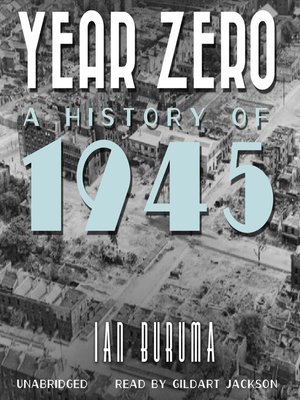
Sign up to save your library
With an OverDrive account, you can save your favorite libraries for at-a-glance information about availability. Find out more about OverDrive accounts.
Find this title in Libby, the library reading app by OverDrive.



Search for a digital library with this title
Title found at these libraries:
| Library Name | Distance |
|---|---|
| Loading... |
Year Zero is a landmark reckoning with the great drama that ensued after war came to an end in 1945. One world had ended and a new, uncertain one was beginning. Regime change had come across Asia and all of continental Europe. It was the greatest global power vacuum in history, and out of the often vicious power struggles that ensued emerged the modern world as we know it.
In human terms, the scale of transformation is almost impossible to imagine. Great cities around the world lay in ruins, their populations decimated, displaced, starving. Harsh revenge was meted out on a wide scale, and the ground was laid for much darkness to come. At the same time, in the wake of unspeakable loss, the euphoria of the liberated was extraordinary, the revelry unprecedented. The postwar years gave rise to the European welfare state, the United Nations, American democracy, Japanese pacifism, and the European Union. Society-wide reeducation was imposed on the vanquished on a scale that had no historical precedent. Much that was done was ill-advised, but in hindsight these efforts were relatively enlightened, humane, and effective.
A poignant grace note throughout his history is Buruma's own father's story. Seized by the Nazis during the occupation of Holland, he spent much of the war in Berlin as a slave laborer and by war's end was literally hiding in the rubble of a flattened city, having barely managed to survive starvation rations, Allied bombing, and Soviet shock troops when the end came. His journey home and attempted reentry into "normalcy" stand in many ways for his generation's experience.
A work of enormous range and stirring human drama, conjuring both the Asian and European theaters with equal fluency, Year Zero is a book that Ian Buruma is perhaps uniquely positioned to write.







